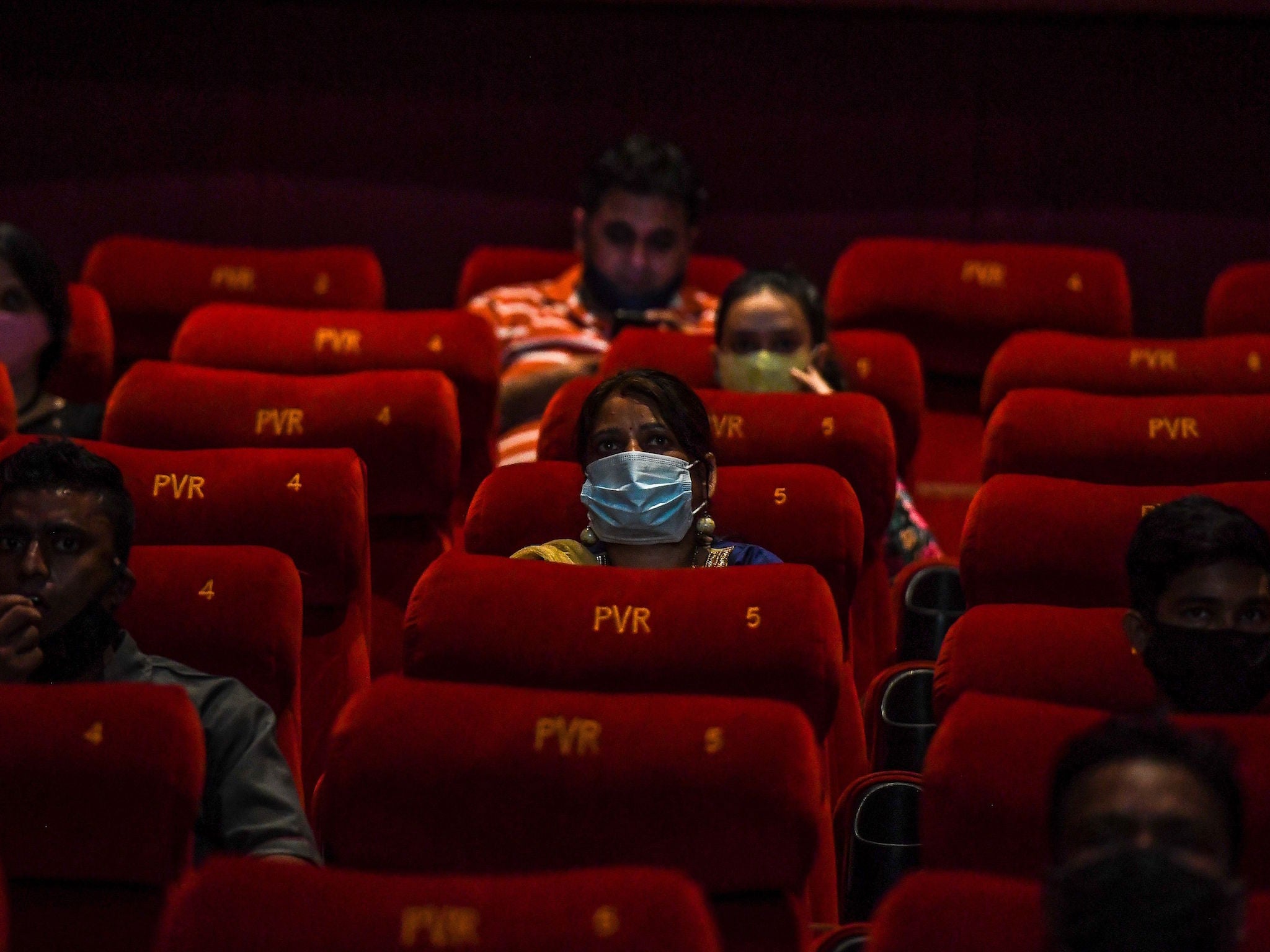Is this the end of cinema? The knock-on effects of coronavirus could spell creative catastrophe for the industry
We all knew that the situation for the film industry was dire, but it’s still staggering to see the impact of the postponement of ‘No Time to Die’, writes Micha Frazer-Carroll


As the nation emerged from hibernation to “eat out to help out”, and perched bums on damp pub benches for their first tentative pints, it seemed that still, no one wanted to take the risk of going to the cinema. Unlike restaurants or pubs, the industry wasn’t exactly booming before Britain went into lockdown in March. Now it just doesn’t feel worth it. An anonymous reader summed it up in The Guardian earlier this week: “I’d feel awful if my parents died because I just had to see Tenet.”
We all knew that the situation for the film industry was dire, but it’s still staggering to see the impact of the postponement of No Time to Die, the 25th instalment of the James Bond franchise. When the film was officially delayed for the second time at the beginning of this month, it seemed to be the last straw for Cineworld, which shut down all 128 of its UK outlets until April, threatening 5,500 jobs. To me, the finality of it seemed shocking: how could the UK’s second-largest cinema chain ultimately be, as one staff member put it, “literally killed by James Bond”? But, of course, it followed the postponement of both Wonder Woman: 1984 and Marvel Studios's Black Widow – signalling the wider phenomenon of cinemas being over-reliant on big-budget action and superhero movies.
So, is this the end of cinema? It’s probably too soon to tell, but the outlook doesn’t look good. Christopher Nolan’s Tenet, the litmus test for pandemic blockbusters, did better than expected, but still far worse than it would have in non-pandemic times. And on Monday, it was reported that cinema admissions in the UK are set to hit their lowest since records began. But we are still engaging with “cinema” in the looser sense of the word: by April, Netflix had added 15 million new subscribers, and in the UK, over half of households pay for at least one streaming service. Throughout the pandemic, many of us have been consuming more content, but we’re doing it at home in our bubbles. Considering the prices, the availability of films online, and the fact that pubs and restaurants are safer and better at facilitating gossipy reunions with friends, movies are something most people seem more comfortable doing at home.
Some studios have tried leaning into this, with little success. The new live-action Mulan took to Disney+ in the UK last month, and was widely considered a virtual box office-flop. Although Mulan had other possible explanations for poor sales (namely calls to boycott the film due to lead actor Liu Yifei's public support of the Hong Kong police), UK viewers also didn’t buy into the idea of paying an additional £19.99 on top of their Disney+ subscriptions to watch the film from their living rooms. So big-budget films are in a catch-22 – there is no good outcome for a blockbuster in the middle of a pandemic. Accordingly, Disney have opted to try the same strategy again with their next Pixar release, Soul.
The knock-on effects of this could also spell creative catastrophe for the industry, at least in the near future. As filmmaker Alex Ross Perry pointed out to The Ringer last week, unless the industry finds a quick creative solution to the current crisis, only the elite-level, most popular blockbuster filmmakers (think the Christopher Nolans and James Camerons) will be able to continue to work. Studios need films that are not only good, but actually galvanise people to pay to see them, enough to at least break even. Given the current state of things, producers won’t take a gamble on anything less.
Perry stressed the ridiculousness of the situation we are currently in: “Am I wrong that there is literally a new Sofia Coppola movie that is out now?!” He is right. Coppola – an Oscar-winning filmmaker has always managed to generate industry hype with films like Lost in Translation and Marie Antoinette – quietly released On the Rocks two weeks ago. If even a film like that can’t make it, we should prepare for a hell of a lot of diversity in storytelling being squeezed out of cinema for the foreseeable future.
Cinema staff – who are central to this conversation – are also facing precarious futures. The treatment of Cineworld’s workforce is not a one-off. As reported by the workers’ collective Cineworld Action Group, it is much the same as that of the customer-facing staff laid off from the Tate, Southbank and National Theatre, which I wrote about in September. Cineworld staff say they have been treated with a lack of dignity, reassurance, and crucially, clear communication – many UK workers say they heard the news on social media. The material circumstances are also appalling: the majority of the workforce won’t receive payments for furlough, leave or redundancy. But sacked staff were able to make the most of management's recent staff offer of discounted sweets (the offer only applied to sweets expiring before the end of 2020, which would otherwise be binned). "The signs have been there," one anonymous worker told The Mirror after finding out she'd lost her job last week. "They've been trying to sell off their pick 'n' mix stock to us."
When approached for comment, Cineworld confirmed to The Independent that it is "no longer able to support a number of our valued workforce", but pointed the blame at "the changed criteria of the furlough scheme". It added: "Those who cannot work are no longer eligible for payments, and so with our cinemas closing, many of our employees will not qualify. We understand that this is a difficult time for many working in the cinema industry and we are determined to help our employees where we are able. Cineworld has also written to prime minister Boris Johnson asking him to acknowledge the unique situation facing the cinema industry and to request that he consider reinstating the furlough scheme as it was previously.”
Much like other elements of the pandemic news cycle, it’s starting to feel a bit like groundhog day – continually rehashing the heartless treatment of low-income workers by huge institutions. But amid endless “is this the end of cinema?” speculation, it bears repeating: the workers at the bottom suffer the most from industry crises, and are also the ones often made invisible by them. Over the next year or so, we will hear more discussion around when, or whether, we will get our cinemas and films back than talk of the workers who make it happen. Both should be of critical concern – after all, we all have a right to art, joy and survival.
Join our commenting forum
Join thought-provoking conversations, follow other Independent readers and see their replies
Comments
Bookmark popover
Removed from bookmarks